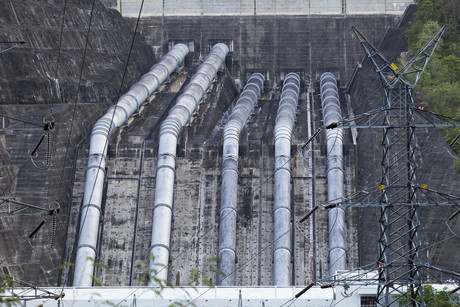Bright future for Australian energy storage despite public uncertainty

A report released by the Australian Council of Learned Academies (ACOLA) says that Australia has the potential to lead the world in developing large- and home-scale energy storage systems if public uncertainty can be overcome.
The report, ‘The role of energy storage in Australia’s future energy mix’, shows that Australia has a wealth of natural advantages that could aid the development of new industries, and exports, and create jobs in mining and manufacturing. It also warns that without proper planning and investment in energy storage, electricity costs in Australia will continue to rise and electricity supply will become less reliable.
The report finds the public had some awareness of energy storage such as batteries and pumped hydro but had very limited knowledge of other emerging technologies such as renewable hydrogen.
It also notes reluctance from consumers to install batteries at home for perceived safety reasons. However, the report identifies that Australians are fast adopters given the right market conditions, and there are 1.8 million buildings, mostly homes, with rooftop solar power systems that could use battery packs for energy storage.
“This report clearly shows the two sides of the coin — that energy storage is an enormous opportunity for Australia but there is work to be done to build consumer confidence,” said the chair of the ACOLA expert working group, Dr Bruce Godfrey.
“The best way to change attitudes is to increase understanding about energy storage.”
“Given our natural resources and our technical expertise, energy storage could represent a major new export industry for our nation,” said Australia’s Chief Scientist, Dr Alan Finkel. “Energy storage is an opportunity to capitalise on our research strengths, culture of innovation and abundant natural resources.
“We have great advantages in the rapidly expanding field of lithium production and the emerging field of renewable hydrogen with export opportunities to Asia.”
“This is the first in a series of ‘horizon scanning’ reports,” said ACOLA President Professor John Fitzgerald. “By working closely with the Office of the Chief Scientist, ACOLA aims to present evidence-based reports on key issues to the Prime Minister’s Commonwealth Science Council to inform policymaking and identify opportunities.”
The report explains that energy storage solutions can improve Australia’s energy system in two major ways. First, by providing greater security by stabilising frequencies that fluctuate within seconds especially with renewable energy sources such as wind and solar farms. Second, by improving reliability by providing additional backup power when needed in times of high demand such as heatwaves.
The forward-looking report has 10 key findings and contains detailed modelling and a national survey of more than 1000 energy consumers. Among the findings is that recycling of lithium-ion batteries is an opportunity for Australia, where we already have a history of recycling more than 90% of lead-acid batteries.
The report was co-funded by ACOLA and the Office of the Chief Scientist. The full report can be found at www.acola.org.au.
OCP and Fortescue to develop green hydrogen and ammonia in Morocco
OCP Group, a manufacturer of plant nutrition and phosphate-based fertilisers, and Fortescue...
Siemens announces Beyond 1% Summit in Sydney
The Siemens Beyond 1% Summit in Sydney in July will focus on accelerating digitalisation for...
UQ turns carbon dioxide into sustainable power
Researchers at the University of Queensland have built a generator that absorbs carbon dioxide to...














